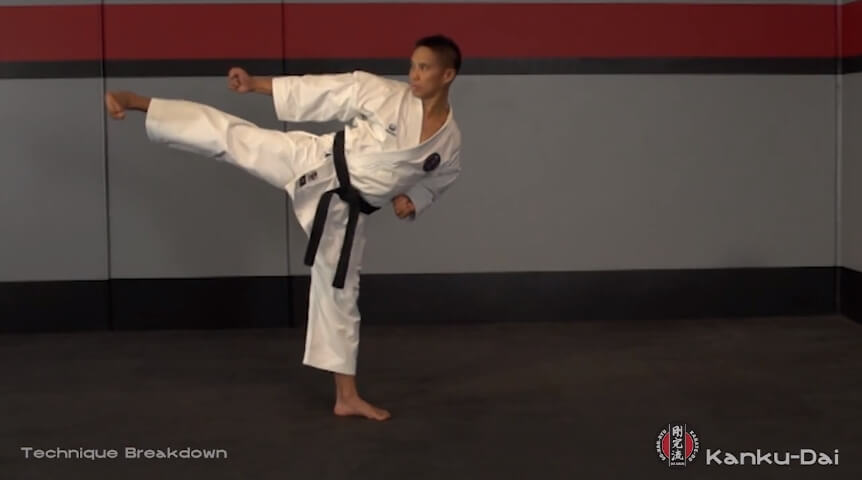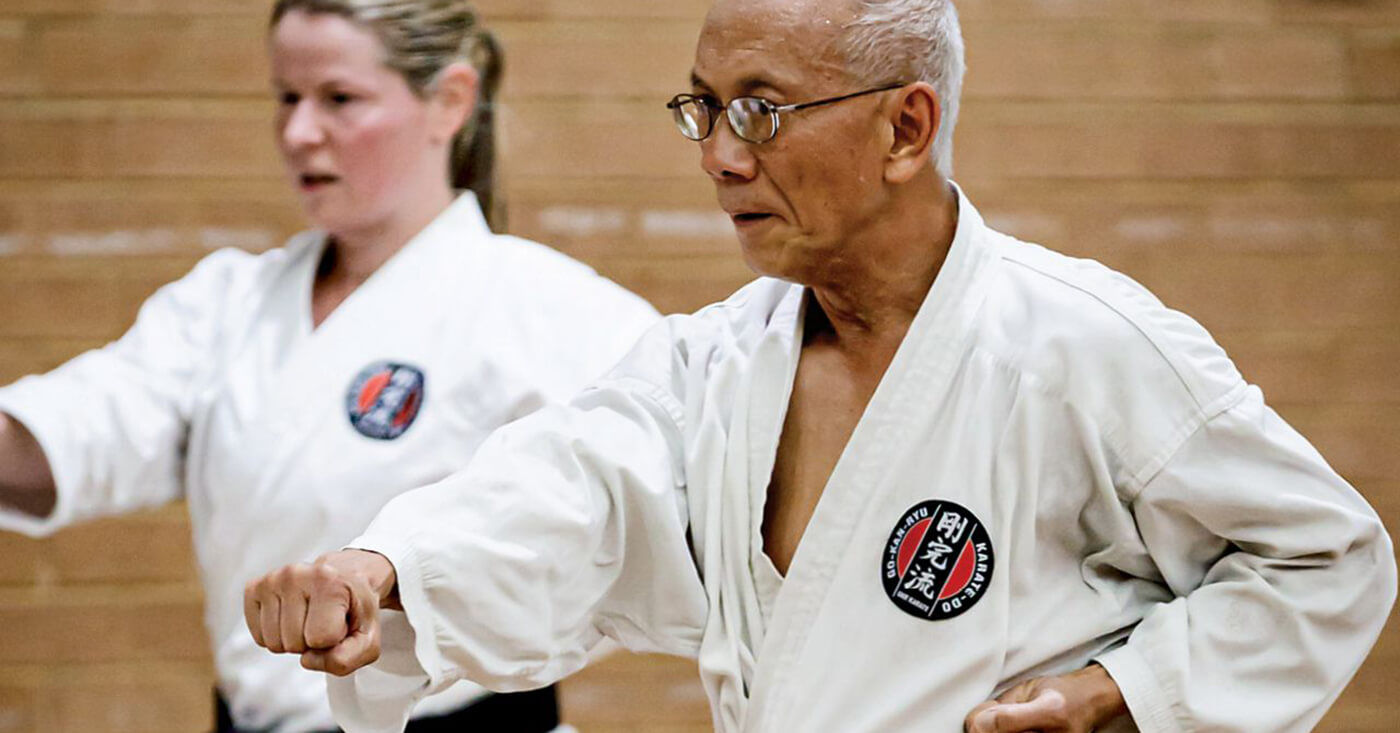Kata: Our Perception Of Perfection
Kata tells you “NO” all day long. It mocks you over and over, telling you “you’re an idiot”. It seems simple; “straighten the back leg as you land in stance”, “keep the hips square, the wrist straight, just move that little faster, stay the same height, elbow stays in…” and so on.
As elementary as it sounds, arduous is the task of having the body carry out these specific actions. We may make the same errors repeatedly or never be quite happy with our speed, snap, fluidity or flexibility. Finding ourselves being mocked by our kata time and time again can be frustrating. Beyond this, we practice hard, becoming accustomed to burning legs and rips in our feet. Does this stop us? No. We persist and soon our feet have rips within rips.
All this work and what is our reward? Our Kata continues to mock us, our instructors harbour a myriad of constructive criticisms, and after giving our all in tournaments, the judge’s score says, “You’ve got a long way to go”.
Is it not surprising that some karate-ka take a disliking to kata, heavily favouring kumite? Kumite, by comparison, does not mock. By-and-large, a block is a block and a punch is a punch. Upon scoring on our opponent, our stance may be slightly off or technique slightly flawed; yet we still feel vindication due to our technique getting in. Some might argue, is this not what matters most?
If kata mocks us all, beginner and master alike, why then do some adore it while others fear it? The answer lies in the way we perceive its mockery; the way in which we perceive our journey of karate.
A Path To Follow
For practically every technique in kata, we are provided with clear explanation and detail: The position and angle of our feet, legs, knees, hips, shoulders, arms, hands etc. Within a brief period, we become aware of the perfect execution and upon establishing this picture in our mind’s eye, we set about turning our perfect mental picture into a physical reality. From here, whether we become a kata lover or loather largely depends on our perception.
Perfection Is Impossible
The goal of kata is perfection and while we see this in our mind, the downside is that perfection is impossible. We can always be better technically – faster, stronger, more fluent – making perfection a pipedream.
Let’s examine the first side-kick technique in kata, Kanku-dai.

Demonstration of the side kick in Kanku-Dai
- The foot must come up to knee then extend out (not below the knee, not above).
- Next it must travel in a straight line (not curve up) to the point of contact where the foot must be shaped correctly (big toe up, blade pointing out).
- Meanwhile, the returning hand must pull tightly back on the floating ribs (not too high or low) and the other arm parallel to the kicking leg.
- After kicking, the foot must come back into a straight line (not collapse down) before moving into a back leaning stance (weight two thirds back, feet perpendicular, knees bent, hands)…
One could write an essay on this one count alone; this is a highly summarised version. And I was only covering one count in the Kata.
Any deviation from this (in any of the areas) and we have made a mistake. In a tournament, a judge might take off 0.1. Now try doing that at explosive speed, where you are pushing your limits. And then the fact you may have to do it in a tournament, in front of everyone, or a grading where your performance is determining whether you grade or not. Ouch!
For Some, Frustration Builds
Are we sadists? What person aims for perfection knowing it to be impossible? What person starts on a journey that can never be finished?
Despite perfection being a pipedream, our instructors still push us toward it and we are always judged in comparison to it. So as years pass and we progress consistently, each session we are still told, “No”. This constant reminder that we are not perfect, and constant focus on kata’s mockery leads to frustration and is the underlying factor behind kata loathers.
In addition, this mockery can cause havoc on the self-esteem with many regularly talking their ability down, “I’m no good at kata”, “I will never be good at kata”.
Perception Is Reality
Cue the kata lover. Still far from perfect, still constantly mocked, still pursuing a pipedream, yet sporting a different perspective. These are people who embrace that perfection is unattainable, and find joy and satisfaction by chipping away at their flaws and improving inch by inch.
There is an old adage, ‘Our perception creates our reality’. Take two students who are both told that five or six things need work. One student focuses on the fact that they are still flawed, which leads to frustration and a ‘why bother’ attitude. The other finds joy in making a small number of errors. Think back to school, many of us were delighted to achieve 80% in an exam. Similarly, 5-6 errors in a kata with over 35 moves means about 80% was good. But we don’t focus on this; we focus on the parts we got wrong.
You might argue this is because it is the same test every time. True but it’s a test where 100% is impossible – especially when you’re pushing your limits. This second student also finds the 5-6 points as constructive feedback – even if they have heard it before – in their quest for improvement.
The keyword here is ‘improvement’. Kata lovers focus on this word while those who become frustrated focus on unattainable perfection.
Perfection Is Nothing More Than Enticement
So while kata mocks without prejudice, those who focus on this and take it personally, those who become increasingly frustrated with their inability to make a physical reality of their mental picture will be those who are worn down by kata. Alternatively, those who perceive kata to be a journey, a destination that cannot be reached but one that simply exists to entice you to continuously work on your technique and make small incremental improvements will be those who enjoy it and flourish.
So don’t be bogged down by an impossible mission of perfection. Why would you even want to be perfect, what then would you have to work on?
Further Reading:




